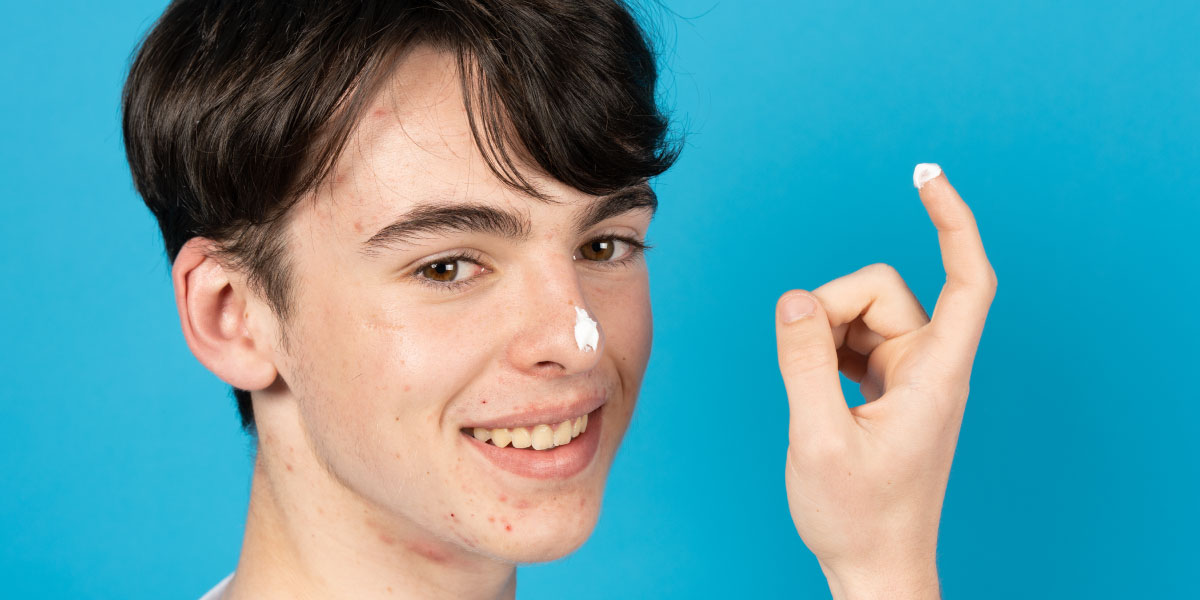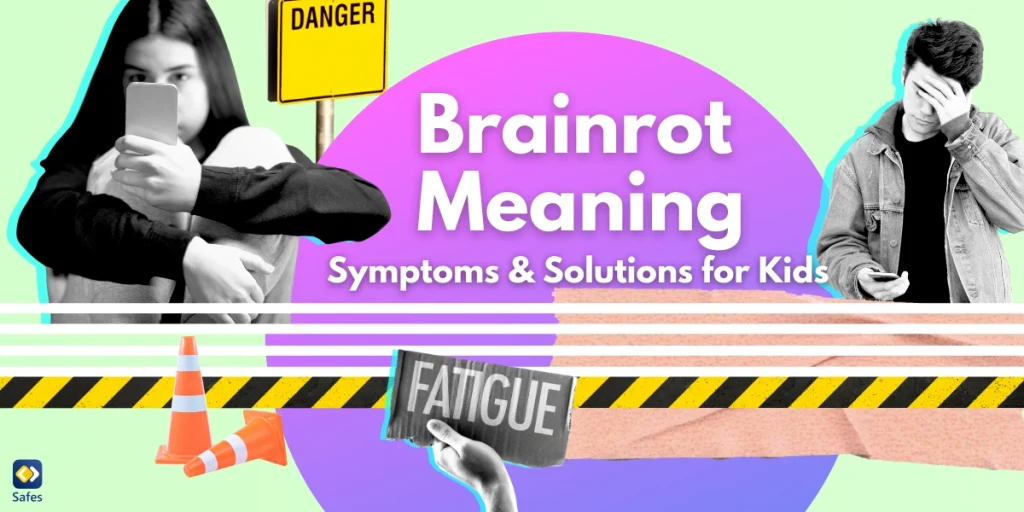Puberty can be an emotional and physical roller coaster. When I look back at that period of my life, all I can remember are crazy vivid images of me trying so hard to build my personality and become my own person.
Download and Start Your Free Trial of the Safes Parental Control App
Puberty is crazy – but it’s nothing to be afraid of. A pubescent teen experiences frequent changes in almost everything. Sometimes, these shifts are so extreme that it becomes a headache both for the teenager and their parents. But all of these changes indicate that the child is growing up and entering adulthood.
The puberty of a boy, however, is much different from that of a girl. Compared to girls, boys in puberty are known for externalizing their transformations more (in simpler words, they usually make more of a mess!). Plus, their bodily changes are different from that of girls. Therefore, it’s important for parents to have gender-specific data on puberty. This blog presents tips on how to deal with puberty in a boy for parents.
Male Puberty Age
Puberty in males usually starts somewhere between 9 to 14 years old – which is two years later than the starting point in females. However, this is not always the case and some people might hit puberty sooner or later than others. This is usually no cause for concern. However, if you feel that your child has hit puberty too soon or that it’s taking a long time for it to come, you should consult a doctor.
What Are Signs of Puberty for a Boy?
We have categorized changes during puberty in boys into three main sections, which we will examine in detail:
Increased Need for Hygiene
Personal hygiene is essential when hitting puberty. There are some drastic physical changes in puberty for males that make the need for hygiene more crucial than ever. A kid who hasn’t showered lately is just a kid who hasn’t showered lately; but a pubescent boy who hasn’t showered in a while is a walking cloud of stench who’s making it hard for the people around him to breathe. Here’s what happens to a boy’s body during puberty:
Perspiration
We have two types of sweat glands in our bodies: eccrine and apocrine. Eccrine sweat glands are charged with keeping the body’s temperature at a suitable degree. They can cause sweating anywhere on the skin. On the other hand, apocrine sweat glands open into areas with hair follicles, such as the armpit or groin.
During puberty, apocrine sweat glands cause more perspiration due to the activation of sex hormones. When the sweat is exposed to bacteria, it causes bodily odor.
Showering regularly and washing the groin and armpits with extra care are very important for a boy in puberty. You should also provide some deodorant and cologne for them and encourage them to use it. Additionally, you want to advise them to buy clothes with more breathable fabric, such as cotton.
Hair Growth
A body that’s going through puberty starts to grow hair in new areas such as the face, armpits, and pubic area. Shaving helps your son’s body to stay clean for longer and makes him look more presentable.

Oily Skin and Acne
A constantly sweaty body is not enough for the puberty monster. That’s why he pours gallons of oil into a teen’s skin and hair and sprays acne powder on their face. Scientifically speaking, though, hormonal changes during puberty make the sebaceous oil glands – which are mostly located on the scalp and face – to cause acne and greasy hair. Washing the face twice a day and hair every day or every other day can help control the oil. Also, if acne is bothering your son too much, make an appointment with a dermatologist.
Emotional Fluctuations
A pubescent boy is a walking bomb of feelings. The hormones that are constantly in overdrive are usually to blame for that. Here are some of the emotional changes that your kid could experience:
Rebellion
A boy in puberty wants to assert himself. He wants to prove that he’s a grown man and that he has matured enough to make big decisions. This, however, is far from the truth.
Teenagers are still at risk of many harms. They are prone to making bad choices, such as smoking or vaping. They can also be negatively affected by social media. Read more about Social Issues Among Teenagers in the Age of the Internet.
While teenagers think that they should be allowed to do whatever they want, adults think otherwise. That’s where rebellion comes in. A young boy starts breaking the rules and sneaking behind his parents’ backs to show that he doesn’t need them.
Try to not take this personally and know that your son is just getting ready to leave his nest. Give him the space he needs but also try to keep him safe until he comes of age. Nowadays, a lot of teenagers’ inappropriate behavior originates from or happens on the internet. A parental control app might come in handy in this situation. Safes is a good example that can help you track your son’s online activities and make sure they’re not engaging in risky behavior. You can install it on iOS, Android, or Windows and start your free trial period.
Beware: Bear in mind that your son is no longer a little child. Therefore, this app shouldn’t become a tool for invading his privacy and interfering with his personal life. Try to use it wisely.
Mood Swings
Mood swings are another symptom of reaching puberty. They involve sudden anger outbursts and sessions of crying. During this time, a teenager might usually be reluctant to talk to or spend time with you. They might also be extra sensitive. Try to put yourself in his shoes and be more considerate.
Going Through Phases
A pubescent teenager goes through many phases, whether it’s a weird haircut, a funny-looking fashion sense, or being a fan of a certain band or celebrity. You’ve probably heard this phrase many times: “No, this is not just a phase. This is for life!”
More often than not, it’s just a phase. But at the moment it’s important to your child. So, if this phase is insignificant and harmless, let them enjoy it for the moment and certainly avoid making fun of them for it.
Physical Changes
There are two main changes a teenage boy’s body goes through during puberty:
Sexual Changes
Sexual changes are one of the main parts of puberty. A boy’s testicles start to grow and he will get frequent, and occasionally spontaneous erections. He may have sexual desires and start exploring his body through masturbation.
He might also have other incidents such as nocturnal emissions. A nocturnal emission, or wet dream, refers to having involuntary orgasms when sleeping. A nocturnal emission leads to ejaculation in men, which will leave you with lots of dirty bed sheets. Keep a few extra clean sheets in your son’s room so that they can change it without having to explain to you what’s happened.
Know that all of these changes are normal. So avoid shaming your child for it. Give him privacy and knock before entering his room.
You might be tempted to have a conversation with him about all of these changes. If your child is open to it, this might be a good idea. However, teenagers normally don’t like to discuss their sexual matters with their parents. They’ve probably learned all about it in sex ed and don’t need you to pressure them into talking. Just let them know that you’re going to be there when they need anything.
Non-sexual Changes
Other changes in a boy’s body during puberty involve growth spurt, getting a cracking voice, and broader chests and shoulders. These changes may make them feel insecure. Try to reassure them that this is all normal and that they don’t look bad at all.
Final Word
In this article, we’ve tried to explain how to deal with puberty in a boy. During puberty, a young man’s body goes through many physical, emotional, and sexual changes. All these ups and downs put teenagers in a vulnerable spot and in need of support. Parents should learn to deal with them in a healthy way. With understanding and consideration, you will be able to pass this period with ease.
Your Child’s Online Safety Starts Here
Every parent today needs a solution to manage screen time and keep their child safe online.
Without the right tools, digital risks and excessive screen time can impact children's well-being. Safes helps parents set healthy boundaries, monitor activity, and protect kids from online dangers—all with an easy-to-use app.
Take control of your child’s digital world. Learn more about Safes or download the app to start your free trial today!




